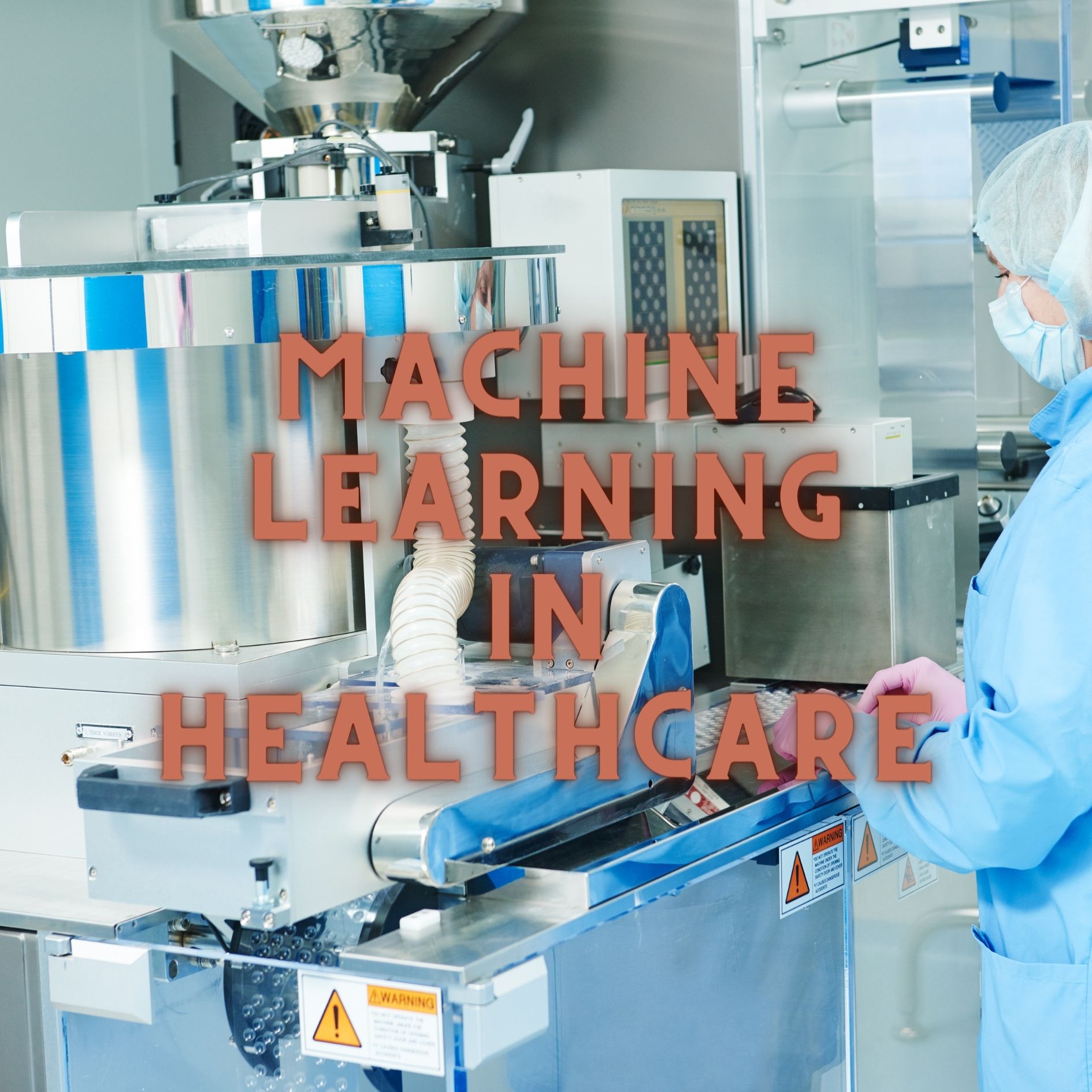In recent years, the healthcare industry has witnessed a revolution brought about by technological advancements. One of the most promising and transformative technologies making waves in healthcare is Machine Learning (ML). This article explores how ML is becoming the next frontier in healthcare, revolutionizing patient care, diagnosis, and treatment.
Introduction
The healthcare industry has always been at the forefront of adopting cutting-edge technology to improve patient outcomes. Machine Learning, a subset of artificial intelligence (AI), has emerged as a powerful tool in this journey. It offers the potential to revolutionize various aspects of healthcare, making it more efficient, precise, and accessible.
In this comprehensive article, we will delve deeper into how Machine Learning is poised to reshape the healthcare landscape, providing a detailed look at its applications, benefits, challenges, and the ethical considerations that come with it.
Understanding Machine Learning
Machine Learning refers to the ability of computer systems to learn and make predictions or decisions without being explicitly programmed. It involves using algorithms and statistical models to analyze vast medical data in healthcare. These algorithms can identify patterns, correlations, and insights that are often beyond the capabilities of human analysis.
Machine Learning operates on the principle of data-driven decision-making. It can process and interpret medical data from various sources, including electronic health records (EHRs), medical images, patient histories, and clinical notes. By continuously learning from this data, ML models become more accurate over time, making them invaluable assets in healthcare.
ML in Medical Imaging
One of the truly exciting frontiers where machine learning is making a significant impact is in the field of healthcare, particularly in the realm of medical imaging. Medical professionals have long relied on radiology for diagnosing various conditions, from fractures to cancer. However, interpreting complex images can be time-consuming and prone to human error.
Machine Learning is changing this landscape by automating and enhancing the analysis of medical images. ML algorithms can analyze X-rays, MRIs, and CT scans, assisting radiologists in detecting diseases like cancer at an earlier stage with higher accuracy. This process speeds up the diagnostic process and improves the chances of successful treatment.
Predictive Analytics for Disease Prevention
Machine Learning is not just about diagnosing diseases; it’s also about predicting and preventing them. ML can analyze patient data and identify patterns indicating the risk of certain conditions. This proactive approach enables healthcare providers to intervene early, potentially preventing illnesses before progressing to a critical stage.
Imagine a scenario where ML algorithms analyze a patient’s medical history, genetic information, lifestyle factors, and even environmental data to assess their risk of developing conditions like heart disease, diabetes, or Alzheimer’s. Healthcare professionals can then develop personalized preventive strategies, such as lifestyle recommendations and regular screenings, tailored to each patient’s risk profile.
Personalized Medicine
Machine Learning recognizes this diversity and offers a solution: personalized medicine. ML can analyze a patient’s genetic makeup and medical history to tailor treatment plans, ensuring the most effective and least invasive interventions.
For example, in cancer treatment, ML can help oncologists determine the most suitable chemotherapy regimen based on a patient’s genetic markers. This technology increases the chances of successful treatment and reduces the risk of adverse side effects.
Drug Discovery and Development
Traditional drug discovery is a time-consuming and expensive process that can take years or even decades to yield results. Machine Learning is transforming this area by accelerating drug discovery and development. ML models can predict how different compounds will interact with the human body, significantly reducing the time and resources required to bring new drugs to market.
Imagine a world where ML algorithms analyze vast datasets of chemical compounds and their effects on human cells. These algorithms can identify potential drug candidates, predict their efficacy, and anticipate possible side effects. This streamlined approach to drug development has the potential to bring life-saving medications to patients faster than ever before.
Automating Administrative Tasks
Healthcare facilities generate vast administrative work, from appointment scheduling and billing to managing patient records. Machine Learning-powered chatbots and automation systems can streamline these administrative tasks, freeing healthcare professionals to focus on patient care.
Imagine a patient can schedule an appointment with their doctor using a simple chat interface on their smartphone. ML-driven chatbots can handle assignment booking rescheduling and even provide reminders, enhancing the overall patient experience and reducing the administrative burden on healthcare providers.
Enhanced Patient Care
Machine Learning goes beyond diagnostics and administrative tasks; it can also enhance the quality of patient care. ML algorithms can predict patient needs and flag potential issues, enabling healthcare providers to deliver more proactive and personalized care.
For example, in a hospital setting, ML can analyze patient data in real time to predict the likelihood of complications. If a patient is at high risk of developing a particular condition, healthcare providers can take preemptive measures, such as adjusting medications or increasing monitoring. This process leads to improved patient satisfaction and outcomes.
Ethical Considerations
The use of Machine Learning in healthcare raises important ethical questions. As we harness the power of ML to improve patient care, we must also address concerns related to data privacy, bias in algorithms, and the potential for job displacement among healthcare workers.
Data Privacy:
The healthcare industry deals with some of the most sensitive and personal information—individuals’ health records. As ML systems process and analyze this data, it’s crucial to implement robust data privacy measures. These measures may include data encryption, access controls, and compliance with data protection regulations like HIPAA (Health Insurance Portability and Accountability Act) in the United States.
Bias in Algorithms:
Machine Learning models learn from historical data; if that data contains biases, the models can perpetuate those biases. In healthcare, biased algorithms could lead to disparities in diagnosis and treatment among different demographic groups. To mitigate this risk, it’s essential to continually assess and improve the fairness of ML algorithms and ensure they do not discriminate against any patient population.
Job Displacement:
Automating administrative tasks through ML can lead to concerns about job displacement among healthcare workers. However, it’s important to note that ML is intended to complement human expertise rather than replace it. Healthcare professionals can focus more on patient care and complex medical decision-making, while ML takes care of routine administrative tasks.
Balancing Innovation and Ethics:
Striking a balance between innovation and ethics is crucial in adopting Machine Learning in healthcare. Ethical guidelines and regulatory frameworks must evolve alongside technological advancements to ensure that ML benefits all patients while preserving their rights and dignity.
Challenges and Limitations
While Machine Learning holds immense promise in healthcare, it also faces several challenges and limitations that must be addressed for widespread adoption.
Quality and Availability of Data:
Machine Learning models heavily rely on high-quality data for training and validation. In many healthcare systems, data quality can vary, and interoperability issues can hinder data sharing between institutions. Ensuring a consistent flow of accurate and comprehensive data is a critical challenge.
Regulatory Hurdles:
Healthcare is a highly regulated industry, and introducing new technologies like ML requires navigating complex regulatory landscapes. Regulatory bodies are working on guidelines for the ethical and safe use of ML in healthcare to address potential risks.
Explainability:
Some Machine Learning algorithms are often described as “black boxes” because it can be challenging to understand how they arrive at their decisions. In healthcare, where transparency and accountability are paramount, ensuring the explainability of ML models is essential.
Integration with Existing Systems:
Integrating Machine Learning into existing healthcare systems and workflows can be complex and time-consuming. It requires collaboration between healthcare IT teams, data scientists, and clinicians to ensure that ML solutions align with clinical practices seamlessly.
Data Security:
As healthcare becomes increasingly digitized, the risk of data breaches and cyberattacks also rises. Protecting patient data from unauthorized access and cyber threats is an ongoing challenge that requires constant vigilance.
Future Prospects
The future of healthcare is undeniably intertwined with Machine Learning. As technology advances, we can expect more disease diagnosis, treatment, and prevention breakthroughs. Here are some exciting prospects for the future of ML in healthcare:
Early Disease Detection:
Machine Learning will continue to enhance early disease detection by analyzing subtle patterns in medical data. This technology means more diseases can be identified at an early, treatable stage, leading to better patient outcomes.
Real-time Monitoring:
ML-driven wearable devices and sensors will enable real-time monitoring of patients’ health. This continuous data stream will provide valuable insights, allowing healthcare providers to intervene.
Personalized Treatment Plans:
Machine Learning will enable the creation of highly personalized treatment plans tailored to each patient’s unique biology and lifestyle.
Drug Repurposing:
ML algorithms can identify existing drugs that may effectively treat new diseases. This “drug repurposing” approach can significantly shorten the time and cost of drug development.
Global Healthcare Access:
Telemedicine and ML-powered diagnostic tools will expand access to healthcare, especially in underserved regions. Patients around the world will benefit from remote consultations and timely diagnoses.
Conclusion
Machine Learning is not just a buzzword in healthcare; it’s a revolutionary force transforming the industry. From early disease detection to personalized treatment plans and administrative efficiency, ML is making healthcare smarter and more accessible. As we move forward, we must navigate the ethical challenges and ensure that this transformation benefits all.
Visit our website to know more!
Follow us on LinkedIn:


